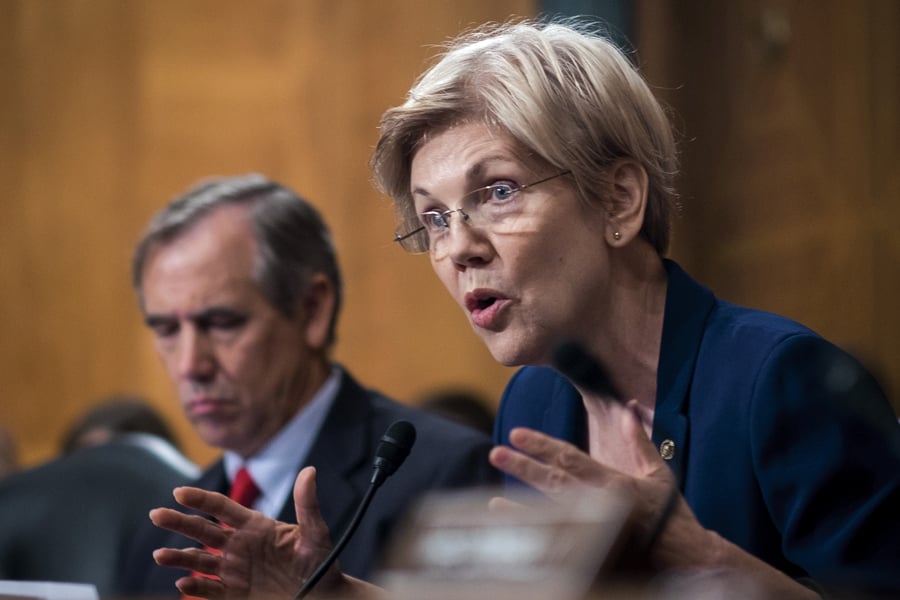

Sen. Elizabeth Warren, joined by Reps. Pramila Jayapal and Brendan Boyle, proposed a new wealth tax on households with a net worth of more than $50 million.
The lawmakers said Monday the new tax, dubbed the Ultra-Millionaire Tax Act, would create a “fairer” economy with a 2% annual tax on households and trusts valued at between $50 million and $1 billion. All net worth over $1 billion would be taxed at 3%.
The group claims the proposal would generate “at least $3 trillion in revenue over 10 years,” citing a Feb. 24 analysis from economists Emmanuel Saez and Gabriel Zucman from the University of California-Berkeley.
“The ultra-rich and powerful have rigged the rules in their favor so much that the top 0.1% pay a lower effective tax rate than the bottom 99%, and billionaire wealth is 40% higher than before the COVID crisis began,” Warren said in a statement. “A wealth tax is popular among voters on both sides for good reason: because they understand the system is rigged to benefit the wealthy and large corporations.”
A wealth tax would be difficult to pass in the current Senate, which is evenly divided between Democrats and Republicans. Democrats control the agenda, since Vice President Kamala Harris can break ties, but most bills require support from 60 senators to advance.
And Democrats have been unable to muster even 50 votes for some administration proposals, including a $15 hourly minimum wage. A wealth tax likely would be even more divisive.
However, Democrats are planning to use special budget reconciliation procedures to pass a bill with a simple majority later in the year that will include parts of a massive infrastructure package. At that point, taxes to pay for the build-out would be on the table. And under Senate rules, tax increases generally are allowed in budget bills.
The bill’s co-sponsors include Budget Chairman Bernie Sanders of Vermont, Sheldon Whitehouse of Rhode Island, Jeff Merkley of Oregon, Kirsten Gillibrand of New York, Brian Schatz of Hawaii, Ed Markey of Massachusetts and Mazie Hirono, also of Hawaii.
Jayapal is from Washington State, and Boyle is from Pennsylvania.

Despite a lighter regulatory outlook and staffing disruptions at the SEC, one compliance expert says RIA firms shouldn't expect a "free pass."

FINRA has been focused on firms and their use of social media for several years.

RayJay's latest additions bolster its independent advisor channel's presence across Pennsylvania, Florida, and Washington.

The deal ending more than 30 years of ownership by the Swiss bank includes six investment strategies representing more than $11 billion in AUM.

Divorce, widowhood, and retirement are events when financial advisors may provide stability and guidance.
How intelliflo aims to solve advisors' top tech headaches—without sacrificing the personal touch clients crave
From direct lending to asset-based finance to commercial real estate debt.
